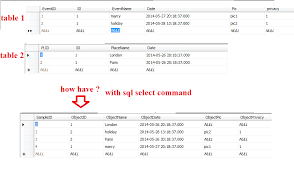If you own a General Motors (GM) vehicle and have experienced excessive oil consumption, you may be eligible to join a class action lawsuit. Class action lawsuits can help consumers seek justice and compensation for widespread issues. This guide will provide a comprehensive overview of how to join a class action lawsuit against GM for oil consumption, including the steps, requirements, and important tips to ensure you are well-prepared.
What is a Class Action Lawsuit?
A class action lawsuit is a legal action filed by a group of people with similar claims against a defendant—in this case, GM. It allows individuals to combine their cases, making it easier and more efficient to address widespread issues and seek compensation.
Why Join the Class Action Lawsuit Against GM?
Joining the class action lawsuit against GM offers several benefits:
- Compensation: Potential reimbursement for repair costs or vehicle depreciation.
- Accountability: Holding GM accountable for the oil consumption issue.
- Efficiency: Combining cases for a more efficient legal process.
Prerequisites for Joining the Class Action Lawsuit
Before you can join the class action lawsuit against GM, ensure you meet the following prerequisites:
- Vehicle Ownership: You must own or lease a GM vehicle affected by excessive oil consumption.
- Documentation: Have evidence of the oil consumption issue, such as repair receipts, oil purchase records, and communication with GM or dealerships.
- Eligibility: Confirm that your specific vehicle model and year are included in the lawsuit.
Step-by-Step Guide to Joining the Class Action Lawsuit
1. Identify the Oil Consumption Issue
Timeframe: Immediate
First, determine if your GM vehicle is experiencing excessive oil consumption. Common symptoms include frequent oil top-ups, engine performance issues, and warning lights.
2. Gather Documentation
Timeframe: 1-2 Weeks
Collect all relevant documentation related to the oil consumption issue. This includes:
- Repair Receipts: Proof of repairs related to the oil consumption problem.
- Oil Purchase Records: Documentation of frequent oil purchases.
- Communication Records: Emails, letters, or notes from conversations with GM or dealerships about the issue.
3. Research the Class Action Lawsuit
Timeframe: 1-2 Weeks
Stay informed about the details of the class action lawsuit against GM. Visit legal websites, news articles, and official court documents to understand the case’s status and eligibility criteria.
4. Contact a Class Action Attorney
Timeframe: 1-2 Weeks
Consult with a class action attorney who specializes in consumer rights and automotive issues. They can provide legal advice, confirm your eligibility, and guide you through the process.
5. Submit Your Information
Timeframe: 1-2 Weeks
Once you’ve confirmed your eligibility and gathered your documentation, submit your information to the law firm handling the class action lawsuit. This typically involves:
- Filling Out a Form: Complete a form with your contact information, vehicle details, and a summary of the oil consumption issue.
- Uploading Documents: Provide the necessary documentation, including repair receipts and oil purchase records.
6. Monitor the Lawsuit Progress
Timeframe: Ongoing
After submitting your information, stay updated on the lawsuit’s progress. Regularly check for updates from your attorney or the law firm handling the case. They will keep you informed about important developments, court dates, and any actions you need to take.
7. Participate in the Legal Process
Timeframe: Ongoing
Be prepared to participate in the legal process as needed. This may include:
- Providing Additional Information: If requested, submit any further documentation or evidence.
- Attending Hearings: In some cases, you may need to attend court hearings or provide testimony.
8. Receive Compensation
Timeframe: Varies
If the class action lawsuit is successful, you may be entitled to compensation. This could include reimbursement for repair costs, financial compensation for diminished vehicle value, or other forms of restitution. Your attorney will guide you on how to claim your compensation.
Tips for a Successful Lawsuit Participation
- Stay Organized: Keep all documents and correspondence related to the lawsuit in a dedicated folder for easy access.
- Follow Legal Advice: Adhere to the guidance and instructions provided by your attorney.
- Communicate Promptly: Respond quickly to any requests for additional information or participation in the legal process.
Common Challenges and How to Overcome Them
Difficulty Proving the Issue
Solution: Ensure you have clear, detailed documentation of the oil consumption issue and any related repairs.
Delays in the Legal Process
Solution: Be patient and stay informed about the case’s progress. Legal processes can be lengthy, but your attorney will keep you updated.
Understanding Legal Terminology
Solution: Consult with your attorney to clarify any legal terms or concepts you don’t understand. They are there to help you navigate the process.
Conclusion
Joining a class action lawsuit against GM for oil consumption can help you seek compensation for the issues you’ve experienced with your vehicle. By following the steps outlined in this guide and working closely with a class action attorney, you can effectively participate in the lawsuit and ensure your rights are protected. Stay informed, organized, and proactive to maximize your chances of a successful outcome.


